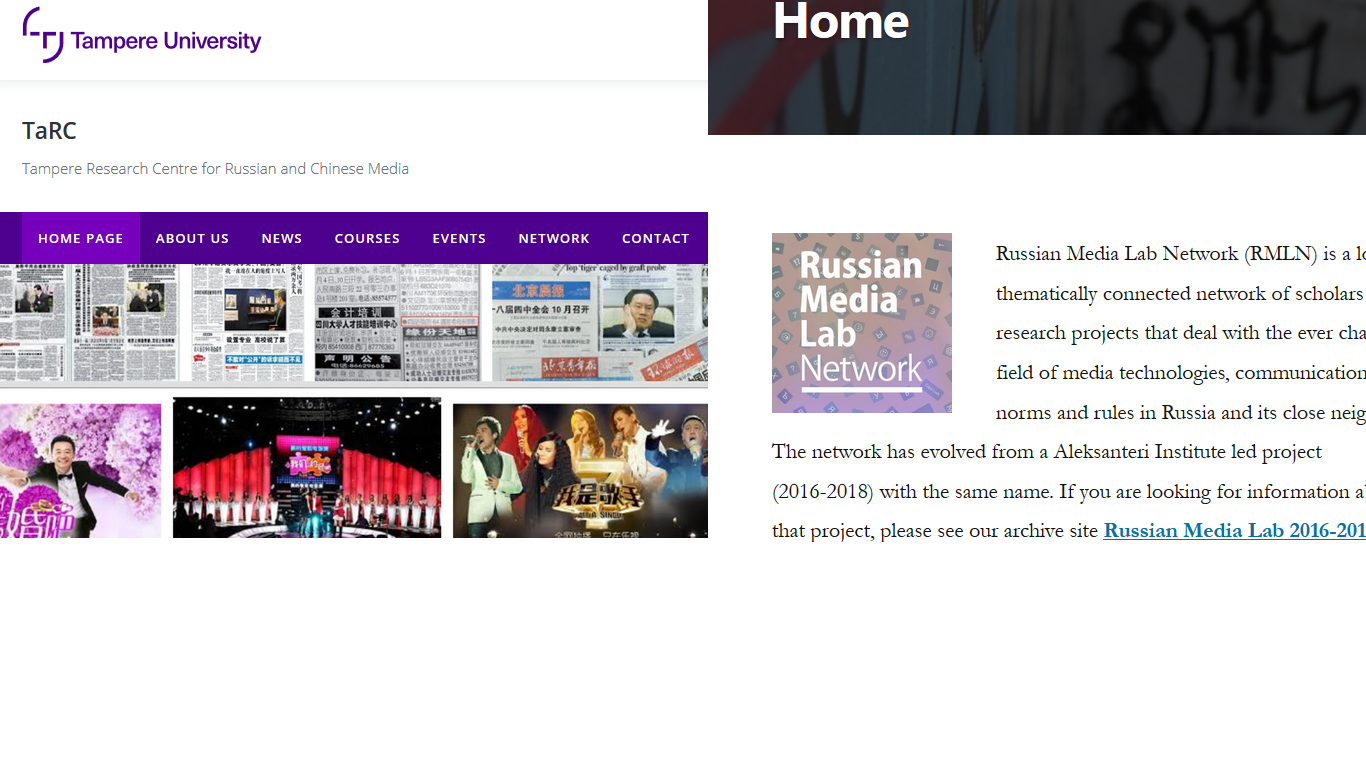Another season of TaRC and Russian Media Lab‘s (University of Helsinki) co-operative endeavour, Online Talks on Russian Media, is drawing to a close.
On Tuesday 10 May, we will conclude the spring term with Svetlana Chuikina’s (Karlstad University, Sweden) presentation “Transmedia audiences and construction of protest movements in Russia: between activism and mundanity”.
The talk concentrates on civil engagement and politicization of people in Russia, mainly young people, who became the largest representative group of the mass protests which visibly intensified in the years following 2017.
Many studies on activism in the digital age state that people participate in politics by belonging to ‘networked’ (Castells, 2007), ‘convergence’ (Jenkins, 2014), and ‘affective’ (Papacharissi, 2015) publics and cultures, as such, to audiences emerging in the post-broadcast age.
At the same time, the notion of audience itself, in studies on social movements in the digital age, has been implied rather than a focal point so far. The ‘network’ metaphor in studies on social movements has generally dominated the epistemological paradigm (Kaun & Uldam, 2018). Moreover, studies on activism have tended to explicitly focus on the ‘event-based perspective’ (Liu, 2017).
This research, instead, is concerned with studying the grass-roots, i.e., those who are not at the core of the protests, but on the margins of social movements.
This marginal status is logical because it is largely conditioned on the risk to an individual’s life and liberties, which to a great extent determines the shape of activism in Russia. The current war initiated by the Russian government in Ukraine is deteriorating the situation and heightening these risks even more.
As such, Svetlana Chuikina argues, the notion of ‘activism’ does not fully fit the Russian context, and what needs to be taken into consideration is ‘the intermediate’ position of such audiences – between ‘activism’ and ‘mundanity’, between a public sphere and private life.
Perhaps one could say that political engagement is rather diffused in media and cultural practices of everyday life, and more related with the personal lifeworld, and orientations in time and space.
Therefore, the aim of this research is to investigate social networking media practices embedded in the everyday life of people in Russia, as submerged mobilizing structures. What is the significance of digital media, and transmedia platforms in particular, in linking everyday life with political participation? How do actors experience these issues over time, in light of political and technological transformations?
Speaker’s bio:
Svetlana Chuikina is a PhD candidate in the Department of Geography, Media and Communication at Karlstad University, Sweden. She studies digital and datafied audiences in the time of ‘deep mediatization’ when the ‘private’ and ‘public’ are increasingly intertwined.
Her research project focuses on the construction of protest movements in Russia, including activists, but also in a wider sense as related to media practices of broader audiences and publics. Bringing together debates on social movement construction, audience studies and affordance theory the research seeks to answer the question: How do digital and datafied tools bridge everyday media use and politics?
Prior to her PhD at Karlstad University, Svetlana was involved in the research project Information Inequality in a Global Perspective at the Department of Journalism, Media and Communication at Stockholm University. She holds a master’s degree in Media and Communication Studies from Södertörn University, Sweden. Before that she worked as a news correspondent, editor and producer for independent media in Kazakhstan, Russia and Ukraine.
Her research interests include media theory, audience studies and a phenomenological approach to studying media spatialities and temporalities.
This Online Talk will be organized on Zoom on Tuesday 10 May from 12:00 to 13:30 (Helsinki time, GMT+3). It will be moderated by Dr Katja Lehtisaari (Tampere University).
If you want to participate, please leave your contact information here until noon on Monday 9 May. If you have registered for Online Talks or the RMLN email list before, no need to register again! We’ll send you the information.

